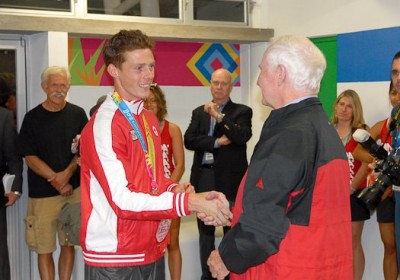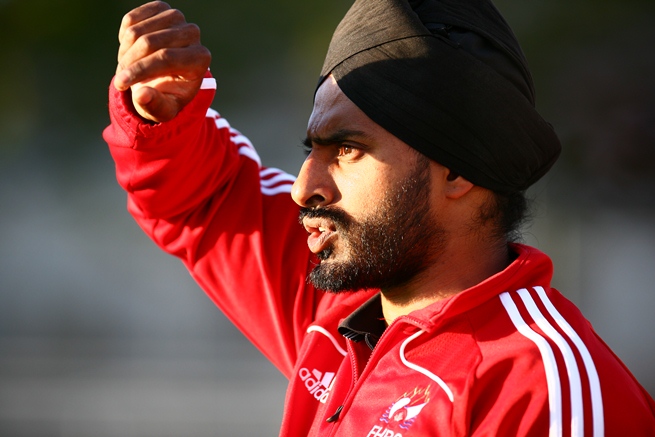
Current Challenges
- Club organization is inconsistent and not defined across Canada. Some “teams” are identified as clubs, with no policies or constitution and are not registered under the Societies Act.
- Clubs are not always structured or staffed for greater accountability and efficiency.
- Administrative culture is not consistently accountable.
- Roles & responsibilities of leaders and officials are frequently not defined.
- Accountability is very weak or non-existent.
- Roles often overlap and conflicts result between different levels of organization.
- Coaches and/or officials are not always involved in strategic decision making.
- Common terminology does not exist for field hockey development.
- Lack of technical support for the National Team programs as well as general membership.
- Many clubs do not have a Technical Director or certified Head Coach.
- Role and qualifications of the Club Technical Director are not defined.
- Grassroots approach to field hockey development is not defined.
- Coaches and officials are not involved enough in grassroots development.
- Field hockey is not marketed and cross-promoted.
- Communication between different stakeholders is inconsistent.
- Parents and coaches are not educated about long-term athlete development (nutrition, regeneration, maturation and psycho-social development, etc.).
- Resources are often focused on a small segment of players and programs.
- Opportunities for coach certification and education are not consistently available.
- Organizations lack commitment to player and organizational development
- Lifelong playing opportunities are not consistently available.
- More volunteers are needed to staff and run programs.
- Clubs lack “cradle to grave” culture where members remain involved for life.
- Officials (umpires & technical officials) are not always provided adequate training and mentoring to develop
LTHD Vision
- Players and coaches have the support of solid administrative frameworks to deliver programs that maximize player participation, development, and success.
- Finances are available for clubs to pay for a chief Administrator (e.g. registration, scheduling).
- FHC Board of Directors supports technical representation.
- Governance structure ensures technical decisions are given necessary priority.
- Elected Board positions have clear criteria and defined terms and deliverables.
- Structure and policies are built on athlete-centred principles.
- Best practices for organizations exist at all levels.
- Organizations have positive relationships with communities, service organizations, funding organizations, and school boards.
- Technical experts are not absorbed in administrative duties.
- PSO executives support and recognize the expertise of their technical staff.
- FHC Board has technical representation with voting power.
- FHC Technical Director is supported by a Technical Advisory Committee including the National coaches and Program Manager.
- PSO Boards have technical representation with voting power.
- Advocates and lobbyists for field hockey are active at federal and provincial levels.
- Federal government recognizes field hockey’s contribution to sport and wellness in Canada.
- Organized fan groups are more active and numerous.
- Canadian star players are promoted in media and given a public profile.
- Canadian field hockey successes are celebrated and promoted in media.
- Games are televised - club championships, CIS, National Championships & National Team.
- Media has a strong positive relationship with field hockey organizations and the game.
- Technical staff and administrators at all levels have clear roles and responsibilities for which they are accountable.
- National field hockey day is established and celebrated.
- Members have access to technical resources.
- Recognition is awarded to clubs which meet positive standards for player development, coaching and administration.
- FHC services are increased to grassroots through PSOs.
- Corporate groups support funding for grassroots field hockey, coach education, LTAD, and player excellence.
- Umpires who travel internationally present findings and “lessons learned” in reports and seminars.
Implementation
- Create a unified structure that links school, club, district, provincial and national programs.
- Encourage non registered field hockey groups to become part of their local/provincial/Canadian associations by selling them the benefits of membership.
- Ensure that every athlete / coach / staff with the National or Provincial program is a registered member of FHC.
- Establish clear pathways for all players, coaches, umpires and administrators within the game.
- Establish high quality Centres of Excellence in each region.
- Establish a fully reorganized, resourced and professionally run FHC Technical Department, with a Technical Director.
- Encourage clubs to increase their financing to pay for a chief Administrator (e.g. registration, scheduling).
- Give priority to technical considerations within the governing structures.
- Establish clear criteria for elected board positions and define terms.
- Identify athlete-centered principles to define structure and policy.
- Identify and implement best practices for organizations at all levels.
- Promote positive relationships between field hockey organizations and communities, service organizations, funding organizations, and school boards.
- Develop dedicated administrative staff so technical experts are not absorbed in administrative duties.
- Support and recognize the expertise of technical staff at all levels (club, regional, provincial, national).
- Establish technical representation with voting powers on FHC and Provincial Boards.
- Establish an Advisory Committee for the FHC Technical Director.
- Promote field hockey advocacy and political lobbying at federal and provincial levels.
- Establish a Canadian field hockey identity.
- Establish Provincial development plans that fit the National vision.
- Promote the National vision to regions and clubs.
- Promote organized support groups, such as National Squad alumni.
- Promote Canadian star players to media.
- Lobby media to televise games at University, Club, National Championships and National Team levels.
- Lobby media to report on field hockey regularly – newspaper, TV, radio and Internet.
- Establish a National Field Hockey Day.
- Establish FHC and PSO awards to recognize clubs which meet positive standards for increase in membership, player development, coaching, and administration.
- Increase FHC services to grassroots through PSOs.
- Solicit funding from corporate groups for grass roots field hockey, coach education, LTHD, and player excellence.
- Increase sources of funding to increase number of qualified staff.
- Recognize field hockey’s role in the health of our nation through partnerships and programs with communities and schools as well as health sectors, resulting in new partners and initiatives for the game and wellness of Canadians.


